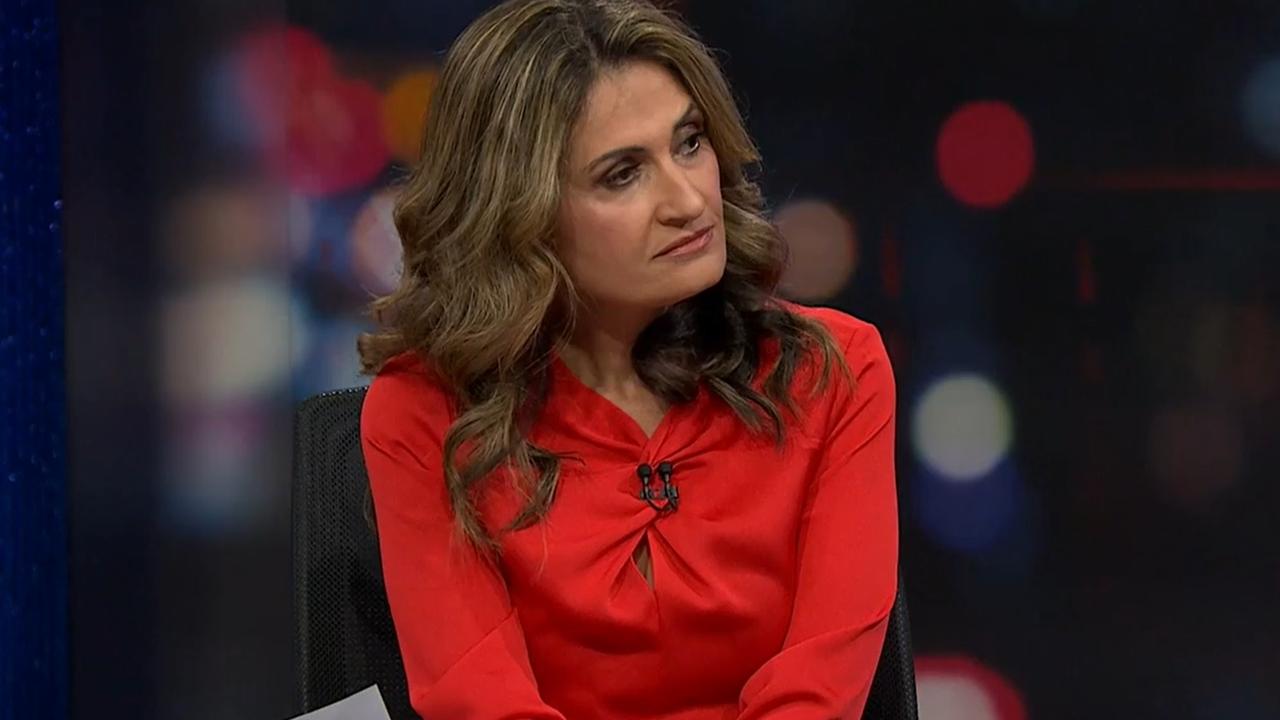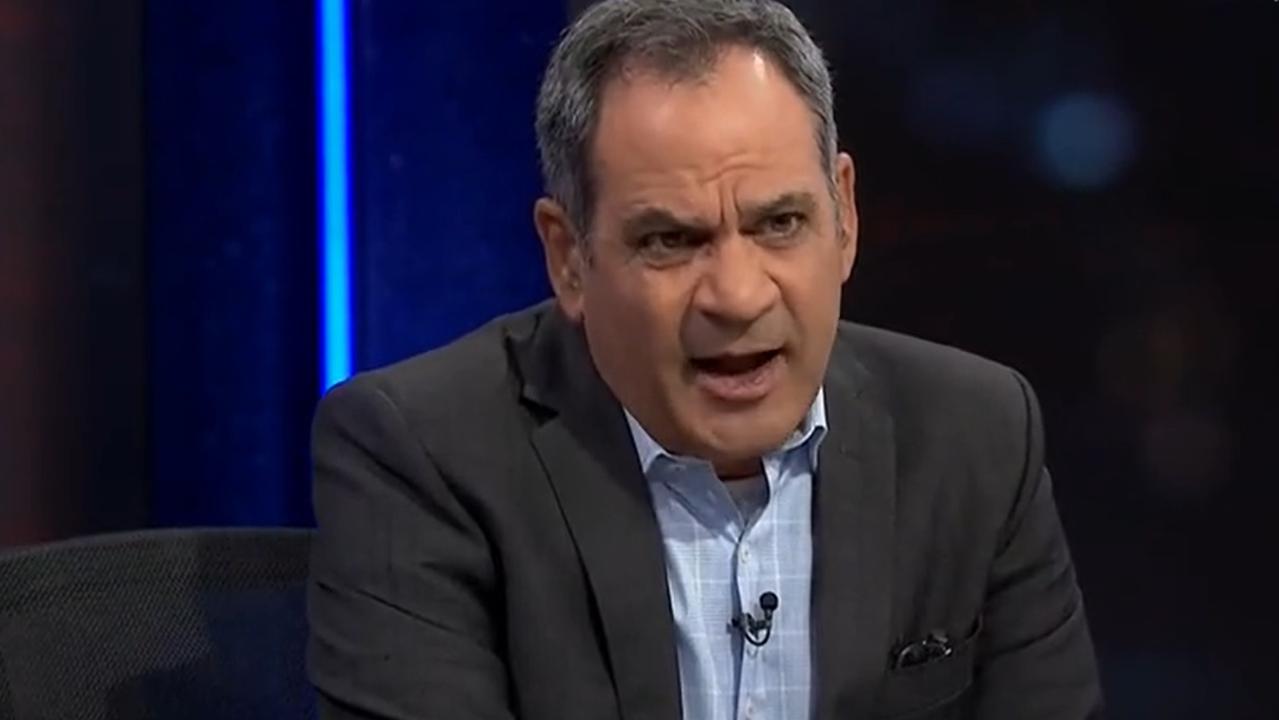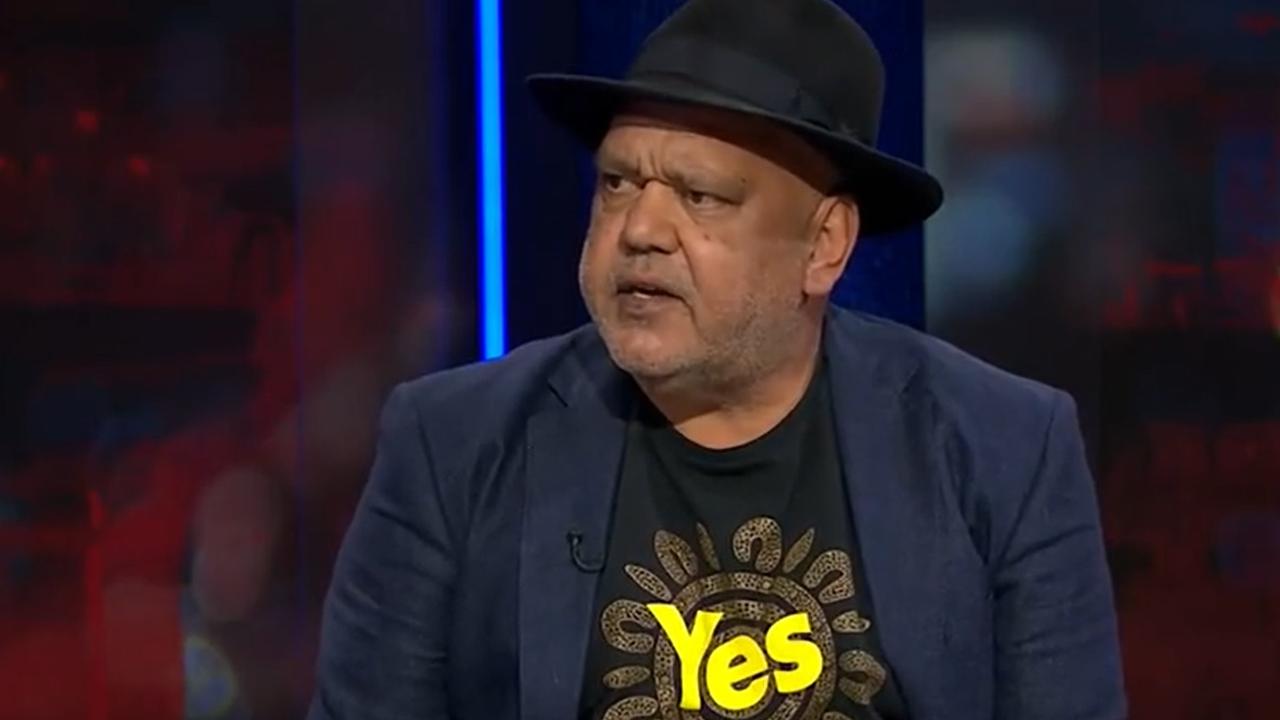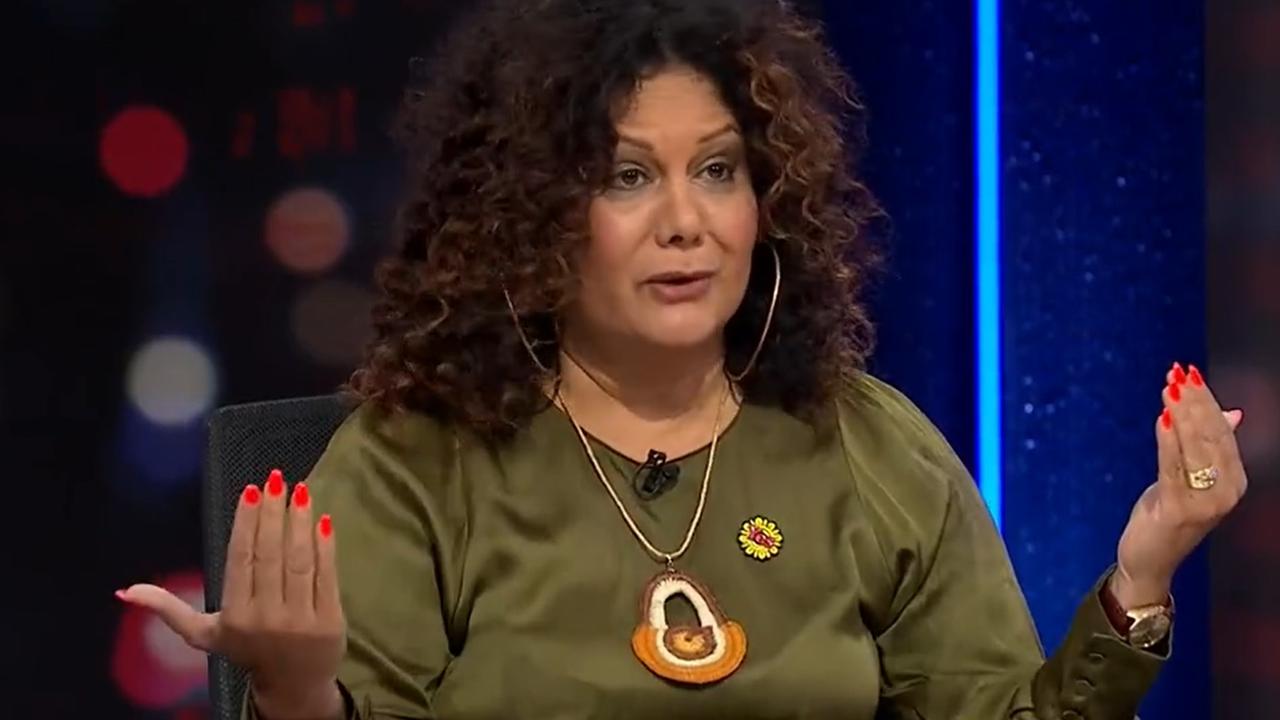‘How is it not?’: Voice debate erupts on ABC
A heated debate has broken out on Q+A after a call to “fund need over race” — prompting host Patricia Karvelas to declare “Indigeneity isn’t race”.
A heated debate over the Voice has broken out on Q+A after a panellist suggested it would make sense to “fund need over race” — prompting host Patricia Karvelas to declare that “Indigeneity isn’t race”.
Wesley Aird, director of the Centre for Indigenous Training and former adviser to Prime Minister John Howard, argued on Monday night’s program that the Voice to Parliament referendum seemed more like Australia was “trying to fill a void” in the nation’s soul, and “we miss the point that we’re trying to do this to overcome Indigenous disadvantage”.
“We’re not actually talking about overcoming disadvantage,” he said, pointing out that there was already significant Indigenous representation in government and business.
“Every jurisdiction in Australia has an Indigenous affairs department, every department has an Indigenous advisory function, every big corporate has got a reconciliation action plan or something.”
Mr Aird said when he was on the former PM’s Indigenous advisory council they were asked “where do we want to be in 10 or 15 years”, and “we all said unanimously, not here, out of a job”.
“What the Voice is going to do is lock disadvantage into the constitution in perpetuity, and I really struggle with that as an Indigenous person,” he said.
“You think it will do that?” Karvelas asked.

“If it’s set up to make it so that we always have this way to express our issues … personally I think it would make more sense to fund need over race, and we could find other ways to value—” Mr Aird said.
“Indigeneity isn’t race,” Karvelas interjected.
“How is it not?” Mr Aird said.
“It’s peoples who pre-existed colonisation,” said Cape York Institute founder Noel Pearson.
The pair then launched into a debate.
“You’re going to have to explain that, sorry,” Mr Aird said.
“There are blonde and blue-eyed Indigenous people in the Arctic Circle,” Mr Pearson said.
“We’re not in the Arctic Circle — this is a constitutional alteration for Aboriginal and Torres Strait Islander people,” Mr Aird said.
“It doesn’t matter, this is not a question of race,” Mr Pearson said. “This is a question of whether there peoples who pre-existed colonisation by the British. They were Aboriginal and Torres Strait Islander peoples, and it’s a recognition of that historical truth.”
“OK, so the races we’re talking about are Aboriginal and Torres Strait Islander,” Mr Aird agreed.
Mr Pearson hit back, “The recognition is not just about disadvantage — it’s about our languages, our culture, our history, recognition of our art, all of the good things we can contribute to the country. It’s not just about disadvantage. I hope the day comes very quickly when we’re over our disadvantage.”

“So we won’t need a Voice then?” Mr Aird asked.
“Why would we not? We’ve got lots to contribute to the country,” Mr Pearson said.
Mr Aird argued “we do that already, we are very much a part of our national fabric”.
Karvelas then intervened.
“You clearly have a different world view about how to share that, right?” she said. “You’re saying that it locks in disadvantage, Noel what I hear from you is that you’re saying it doesn’t lock in disadvantage, it deals with that and then it exists as like a cultural authority.”
Mr Pearson said the Voice was a “massive opportunity for the country”.
“I hope the day comes when we are out of our disadvantage and our culture is a real contribution to the rest of the nation,” he said. “We will still be Indigenous people, though.”
Later in the program, Mr Aird drew an angry reaction from the audience after he suggested some Indigenous people were not really Indigenous.
“As I said before, fund need not race,” he said.
“When you create rules around race I think that then creates … we’ve had some numbers thrown up that of the 800,000-plus Indigenous Australians, some people believe up to 200,000-300,000 are not quite who they say they are. That’s been out there.”
“I can’t fact check that on the spot, sorry,” Karvelas said.
“I don’t believe it myself, I think the number would be much lower, but it is an issue when you are creating an identity-based scheme, and it financially incentivises people, and I do have an issue with that,” Mr Aird said.

‘This is our grand final’
Meanwhile, a leading Yes campaigner on the panel expressed the enduring emotional toll of government policies that did not consult First Nations people, in a last push to convince voters ahead of the referendum.
Assistant Minister for Indigenous Australians Malarndirri McCarthy took aim at the failed efforts of past governments to help indigenous people.
She said “people have forever remained traumatised” by the Northern Territory Emergency Response in 2007, introduced by former Prime Minister Howard.
The NTER was stated to be a response to protect Aboriginal children from sexual abuse and family violence, but it was harshly criticised by many and described as a racist piece of legislation in some quarters.
The Howard government also failed to consult Aboriginal people before launching the emergency intervention, according to Ms McCarthy,
“No one was asked from the Northern Territory, certainly no Aboriginal or Torres Strait Islander person [was asked] as to whether this would work for them,” she said before using the NTER as an example of the need for a Voice.
Later on in the program, Ms McCarthy drew attention to the historical importance of the referendum, drawing a comparison to the weekend’s sporting events.
“Our people want to have that Voice enshrined in the constitution,” she said to applause from the Q+A audience.
“This is our grand final. This is our grand final between yes and no. This is the most generous request that is being put to the people of Australia. This is such a significant moment for us together as all Australians.”

Pressed by a member of the audience about whether the government would plough ahead and legislate a Voice if the No camp wins, Ms McCarthy said all she was focused on was winning the referendum.
“Nobody asked the Pies two weeks ago, ‘What are you going to do if you lose?’” she replied in reference to Collingwood’s nailbiting AFL Grand Final win on Saturday.
“The best team won in that grand final by the way,” Karvelas quipped.
Earlier in the program there had been a fiery clash between leading Mr Pearson and Liberal Senator Dan Tehan.
Mr Tehan, the opposition spokesman for Immigration and Citizenship, pressed the No case because he claimed it wasn’t clear how the Voice would operate once it was passed.
“Dan, I think you’re missing the point mate,” Mr Pearson shot back at him.
“You’ve got the power to legislate here,” he added, saying the referendum was to establish the presence of a Voice and it was then up to the politicians how they implemented it.
“It is true that you do have some powers as a parliamentarian to construct this thing, right?” Karvelas asked Mr Tehan. “The constitution creates it and then the parliament legislates it.”
“But once it’s in the constitution it cannot be changed or to change it you have to go to a referendum,” Mr Tehan responded.
“No that’s not true,” Karvelas replied. “You can change the Voice, you wouldn’t be able to abolish it.”
The Indigenous Voice to Parliament referendum is due to take place on October 14.
According to a survey released by Q&A during the program, 52 per cent of people are planning to vote early. The most recent polling shows the No campaign firmly ahead with less than two weeks to go.
— with NCA NewsWire






